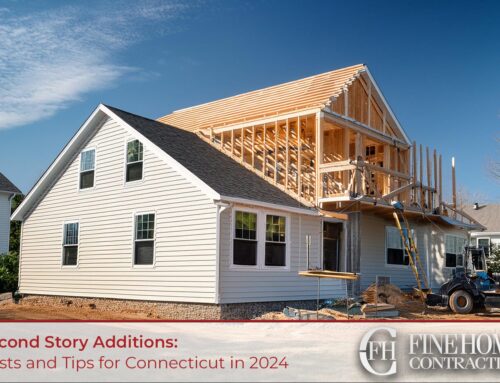Home remodeling can be a daunting task, even for the most experienced homeowners. From securing the right contractor to navigating building codes and regulations, the process can be overwhelming, especially for those new to home renovation. Unfortunately, some contractors can take advantage of this complexity and lack of knowledge, making it important to stay informed and aware. In this article, we’ll reveal some home remodeling secrets that your contractor may not want you to know. From common scams to watch out for, to tips on how to save money on your project, and understanding the remodeling process from start to finish, we’ve got you covered. Read on to learn more about how to make your next home remodeling project a success.
Common Contractor Scams to Watch Out For
When it comes to home remodeling, finding the right contractor is key. Unfortunately, there are some unscrupulous contractors out there who might try to take advantage of unsuspecting homeowners. Here are three common contractor scams to watch out for:
The Disappearing Contractor
One of the biggest fears homeowners have about hiring a contractor is that they will take their money and disappear without completing the job. To avoid this, be sure to ask your contractor for a detailed timeline of the project, including start and end dates. Also, make sure you have their contact information and that they are responsive to your calls and emails.
The Upfront Payment Scam
Some contractors will ask for a large payment upfront before they begin work on your project. While it’s not uncommon for contractors to ask for a deposit, be wary of any contractor who asks for a large portion of the total cost of the project before they’ve even lifted a hammer. A reputable contractor will be willing to work with you on payment terms and won’t require a significant down payment.
The Low-Ball Estimate
Many contractors will offer a low-ball estimate to entice homeowners to hire them for a project. However, this can often be a red flag that they will cut corners or use low-quality materials to keep costs low. Always get multiple estimates and compare them to make sure you’re getting a fair price.
The Unlicensed Contractor
Hiring an unlicensed contractor can lead to various risks and potential scams. These individuals may lack the necessary qualifications, insurance, and adherence to building codes. To protect yourself, always verify the contractor’s license status and ensure they are authorized to perform the work you require. Ask for their license number and check it with the relevant licensing authority in your area before proceeding with any agreements.
The Change Order Scheme
Some contractors may try to take advantage of homeowners by employing the change order scheme. They initially provide a low estimate, but once the project is underway, they continuously request additional payments for unexpected changes or claim that unforeseen issues have arisen. To avoid this scam, carefully review the contract and ensure it includes a clause that specifies the process for handling change orders, including clear guidelines for cost adjustments and approvals.
The Material Substitution Scam
In the material substitution scam, dishonest contractors may promise to use high-quality materials but substitute them with cheaper alternatives without the homeowner’s knowledge or consent. To protect yourself, ask for a detailed list of the materials that will be used in your project and their specific brands or specifications. Be vigilant during the construction phase and ensure the materials being installed match the agreed-upon specifications.
The Insurance Fraud
Contractors engaging in insurance fraud can put homeowners at significant financial risk. They may present fraudulent insurance documents or claim to have coverage that doesn’t actually exist. To avoid falling victim to this scam, request a copy of the contractor’s insurance policy directly from their insurance provider. Verify the policy’s validity and ensure that it covers the type of work being performed and offers sufficient liability coverage.
The Storm Chaser
After natural disasters or severe weather events, some unethical contractors, known as storm chasers, exploit vulnerable homeowners. They typically go door-to-door, offering their services and claiming to provide quick and affordable repairs. However, these contractors often perform subpar work, use low-quality materials, and disappear after receiving payment. To avoid this scam, research and select contractors based on their reputation, credentials, and references rather than accepting unsolicited offers.
How to Negotiate a Fair Contract and Pricing
Negotiating with contractors can be tricky, but with the right approach, you can get a fair price and a contract that protects both parties. Here are three tips for negotiating a fair contract and pricing:
Be Specific About the Project
Before you start negotiating with a contractor, be sure you have a clear idea of what you want from the project. Make a list of the specific items you want to be included in the project and be upfront with the contractor about what you want.
Get Multiple Quotes
Don’t settle for the first estimate you get. Get multiple quotes from different contractors and compare them. This can help you get a better sense of what a fair price for the project is.
Negotiate Payment Terms
Don’t be afraid to negotiate payment terms. Many contractors are willing to work with homeowners on payment schedules that are more manageable.
Essential Questions to Ask Before Hiring a Contractor
Before you hire a contractor, it’s important to do your due diligence and ask the right questions. Here are three essential questions to ask before hiring a contractor:
Ask About Their Experience and Qualifications
Make sure the contractor you’re considering has experience with the type of project you’re planning. Also, ask about any certifications or licenses they have that are relevant to the work they’ll be doing.
Ask for References and Check Them
Ask the contractor to provide references from previous clients and follow up with those clients to see if they were satisfied with the work.
Ask About Their Insurance and Licenses
Make sure your contractor has the necessary insurance and licenses to do the work they’ll be doing. This can protect you from liability in case of accidents or damage to your property.
The Importance of Proper Permits and Inspections
When it comes to home remodeling, proper permits and inspections are essential for ensuring quality work and avoiding legal issues. Here are three things to keep in mind:
Understanding Building Codes and Regulations
Make sure your contractor is familiar with the building codes and regulations in your area. This can help you avoid any legal issues down the line.
Securing Necessary Permits
Your contractor should be responsible for securing any necessary permits for the project. If they ask you to obtain the permits, this could be a red flag that they’re not licensed or qualified to do the work.
The Role of Inspections in Ensuring Quality Work
Inspections are a critical part of the home remodeling process. They can help identify any issues or problems early on and ensure that the work is being done to code. Make sure your contractor agrees to inspections and that they will work with inspectors to address any issues that arise.
How to Prevent Project Delays and Unexpected Costs
Create a detailed project plan
The key to staying on budget and on schedule during a home remodeling project is to create a detailed project plan. This plan should include a comprehensive timeline, budget breakdown, and a list of materials and labor needed for the project. Be sure to account for any potential setbacks or issues that may arise during the construction phase.
Be proactive in addressing issues
Despite your best planning efforts, issues may still arise during the remodeling process. It’s important to be proactive in addressing these issues to prevent project delays and unexpected costs. Be sure to communicate any concerns or problems to your contractor, and work together to find a solution that works for both parties.
Communication is key
Clear and frequent communication between you and your contractor is essential to the success of your home remodeling project. Be upfront about your expectations, budget, and timeline from the beginning, and make sure to address any issues or questions as they arise. Keeping an open line of communication throughout the project will help to prevent misunderstandings and ensure that everyone is on the same page.
DIY vs Hiring a Professional – Pros and Cons
The benefits of hiring a professional
Hiring a professional contractor can save time and money in the long run. Professionals have the experience and knowledge to get the job done right the first time and can help prevent costly mistakes and delays. They also have the necessary tools and equipment to complete the project effectively.
The risks and challenges of DIY projects
While DIY projects can be a fun and rewarding experience, there are also significant risks and challenges to consider. DIY projects can often take longer than anticipated, may require more specialized tools and materials than initially thought, and can lead to costly mistakes if not done properly. Additionally, DIY projects can be physically demanding and may require significant skill and expertise.
When a combination of DIY and professional help is the best approach
In some cases, a combination of DIY and professional help may be the best approach. For example, homeowners may choose to tackle some of the simpler tasks themselves, such as painting or demolition, while leaving the more complex tasks to the professionals. This approach can save money while still ensuring professional-quality results.
Creative Ways to Save Money on Your Home Remodeling Project
Shop for materials and products online
Shopping for materials and products online can save you a significant amount of money on your home remodeling project. Many online retailers offer competitive prices and free shipping, and you may be able to find discounts or sales that aren’t available in-store.
Consider alternative materials
Using alternative materials can also help save money on your home remodeling project. For example, instead of using expensive hardwood flooring, consider using a more affordable laminate or vinyl flooring option. Similarly, using recycled or repurposed materials like reclaimed wood can add character and charm to your home while saving money.
Reuse and repurpose existing materials
Before tearing out and replacing existing elements in your home, consider ways that you can reuse or repurpose them. For example, old cabinets can be refinished and used in another room, or old doors can be turned into a unique headboard or benches.
Understanding the Remodeling Process from Start to Finish
The Planning Phase
The planning phase is where you will develop a clear understanding of your goals, budget, and timeline for your home remodeling project. During this phase, you will work with your contractor to develop a detailed project plan that includes the scope of work, materials needed, and a timeline for completion.
The Design Phase
During the design phase, you will work with your contractor to develop a design plan for your home remodeling project. This may include selecting materials, colors, and finishes, as well as drafting blueprints and creating a 3D rendering of the project.
The Construction Phase
The construction phase is where the magic happens. During this phase, your contractor will coordinate with subcontractors and oversee the construction of your home remodeling project. It’s important to communicate regularly with your contractor during this phase to ensure that the project is progressing according to plan and that any issues are addressed promptly.In conclusion, home remodeling can be a rewarding experience when done right. By following the tips and tricks outlined in this article, you’ll be better equipped to take on any home renovation project with confidence. Remember to do your research, ask the right questions, and stay involved in the process from start to finish. Whether you’re planning a small renovation or a major overhaul, a successful home renovation is possible with the right knowledge and preparation.







